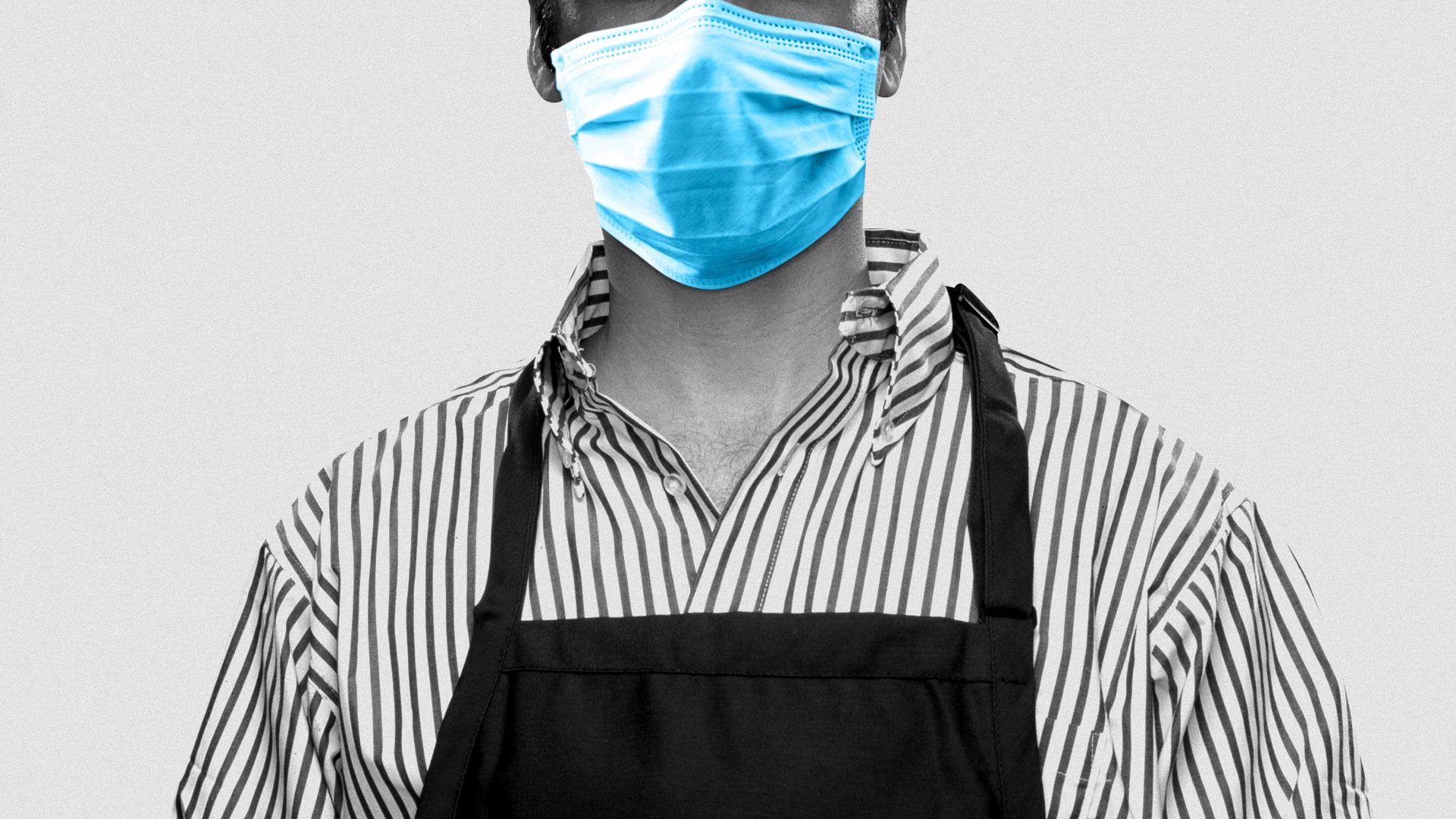The Americans who can't hide from coronavirus
Add Axios as your preferred source to
see more of our stories on Google.

Illustration: Eniola Odetunde/Axios
The stock markets are in bad shape, but for the millions of Americans who aren’t invested in stocks, coronavirus is presenting a far more imminent concern.
Why it matters: Quarantines usually work with at least 90% participation, but many Americans lack the flexibility to work remotely, take a sick day or absorb having schools close.
- And today, the World Health Organization raised its global risk assessment for the novel coronavirus to its highest risk level as countries struggle with containing the spread of the virus.
The big picture: People in service jobs or low-wage workers could disproportionately lose some income, compared to those with advanced education or more-skilled professions.
- Rural Americans sometimes have less reliable internet access for remote work and remote schooling.
- Parents may have to scramble as children get pulled out of school and day care.
- Students on free and reduced lunch risk going without a meal if schools close.
- Undocumented immigrants are less likely to call off work or check into a health care facility from lack of health insurance and ICE fears.
- Health care workers risk getting sick if an outbreak brings in an influx of patients to the emergency room.
- Public transit users could be in trouble if trains and buses shut down.
Flashback: After the SARS pandemic in 2005, a report from the SARS commission concluded there were no repercussions for cities that didn't follow federal quarantine orders.
- Paid sick leave, which Americans aren't guaranteed, would have been a great incentive for hourly-wage workers to stay home, the author wrote.
What they're saying:
- "We have to think about the vulnerable subpopulations. What about those who work for hourly wages without sick pay? What about those who can’t afford to stay home if there is an outbreak? We should consider how to support the needs of all vulnerable populations to curb the spread of disease," Chris Coughlin, professor at the Wake Forest University School of Law, tells Axios.
Mick Mulvaney at CPAC Friday “Are you going to see some schools shut down? Probably. May you see impacts on public transportation? Sure. But we do this. We know how to handle this." - National Economic Council director Larry Kudlow Friday called the market downturn a "short-term market plunge" and said, "I don't think at this point it's going to have much of an impact."
Still, technological advances have Americans better equipped for teleworking, digital medical services and take-home assignments for students.
- More than 1 in 20 Americans say they usually work from home, Labor Department data shows.
The bottom line: "I understand this situation may seem overwhelming and that disruption to everyday life may be severe, but these are things that people need to start thinking about now," said the CDC's Nancy Messonnier.
Go deeper: Full coronavirus coverage
